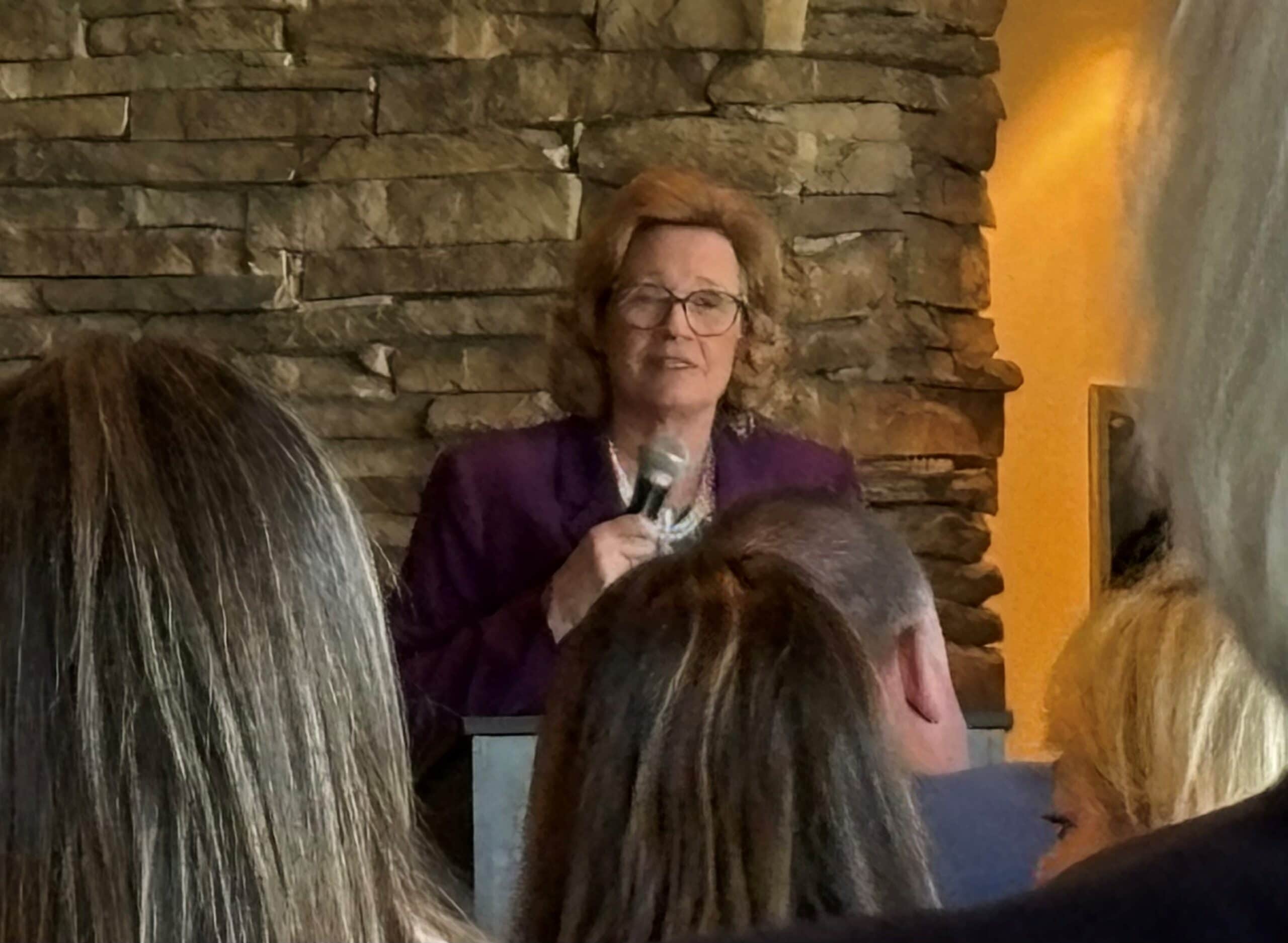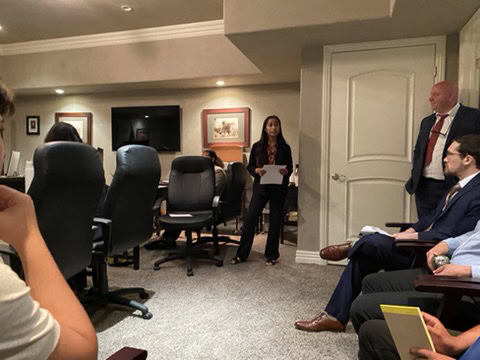Riverside Superior Presiding Judge Judith Clark shared areas of advancement and the status of ongoing challenges at a state of the court address at a Desert Bar Association event Jan. 12 in Indian Wells.
Shortfalls in judges and courtrooms continue, but she said the court is reprioritizing resources and using creativity to maximize service.
“We are doing everything we can to ensure we are providing access to justice to this community,” she said.
Criminal court
She said the courts have increased the number of criminal trial departments. In 2023 the court conducted 590 criminal trials, a 92% increase from 2022 and surpassing any year pre-pandemic.
“I have a big board of magnets showing me where the judicial officers are. No matter how I move the magnets, I still only have 90 of them, and I should have 112.”
Riverside Superior Presiding Judge Judith Clark
They continue to operate mandatory settlement courtrooms throughout the county, and they are implementing a targeted misdemeanor mandatory settlement program to resolve misdemeanors early to address the backlog.
Judgeships
In January and February, the court filled three open judge seats by appointment. All the open seats were filled for the first time in many years, but May saw retirements.
Out of the five recent vacancies, only one has been filled.
“So we started the year with three judicial vacancies, and ended the year with four,” she said. “The court will continue to be 22 allocated judicial positions short based on the caseload the assessment from 2019 said we required.”
She said after post-trial work is factored in, and even greater need is expected to be assessed.
“I want to address the need for qualified applicants to seek appointment to the bench, she said. “I’m already aware of one judge intending to retire this year and two in 2025.”
She reported that the state allocated 26 additional judicial positions–five for Riverside County–but funding for those positions was not in the draft of the latest state budget.
“But it’s essential that we have qualified judges in the pipeline when the funding comes up.”
She said it’s essential to get judicial officers in the desert who come from the desert and will stay in the area, because a long drive can make people want to be transferred.
She urged judicial hopefuls to contact the Inland Counties Judicial Mentorship Program operated in conjunction with San Bernardino Superior Court.
”We have been very successful in having candidates who went through this program appointed to the bench.”
Technology
On the technology side, she reported the court has an updated website, and the transition to e-court is the final stage in updating the case-management system, which has been a multi-year effort.
CARE Court
Riverside County, among the first to implement CARE Courts, started the new program in October.
“CARE Court has been an incredibly heavy lift for the court over the course of the last year,” she said.
Judge Magdalena Cohen is presiding over that program. Riverside Superior has created best practices, forms and manuals that have been adopted by other courts, Clark said.
To date, Riverside’s courts have received 27 petitions to commence CARE proceedings.
Probate
Cohen’s time will be split between CARE Court and probate, which adds about half a judicial officer to probate.
Courthouses
Regarding facilities, she said construction of the new juvenile and family courthouse project in Indio was severely compromised by mud during Hurricane Hilary. They are scheduled for a certificate of occupancy May 25.
It will have five courtrooms. Two will be family law, two juvenile—one dependency, one delinquency. The fifth is not determined yet.
“We’ll look at case filing statistics. There’s a downward trend in delinquency filings,” she said.
The new Menifee courthouse is expected to get a certificate of occupancy in late May or early June. Move-in is expected between June 20 and July 8 and they hope to be fully operational on July 11.
She said last year she reported she was focused on advocating for the retention of the Hemet courthouse—not giving it back to the county. She said it will offer open courtrooms ready to go live when funding for judges comes through.
“We don’t have time when someone gives us judges to say we’ll have courtrooms to put them in 10 years from now.”
Family law
An audience member asked if there were plans to expand the family law bench.
“The court is very aware we need to do that,” she said. “We expanded by two judges since last year. Further expansion depends on getting more judges.”
She reiterated that recent legislation approved five more judges for Riverside County.
New courtrooms give the court the flexibility to assess their caseload and address it, but she said they will have to see when the judges we expect are funded, because “until they are funded they are a figment of my imagination.”
Court reporter shortage
Clark said the court reporter shortage continues to be a significant challenge.
“The availability of court reporters is limited enough for us that last year we pulled the court reporters out of civil where they are not mandated, and I regret to say I signed the order to pull them from family law as well,” she said. “It’s not an automatic you won’t have one in family law; it’s if they are available.”
She said the court has been focused on passage of SB662 to expand courts’ use of electronic recording for proceedings if a court reporter is not available.
The bill was in the Senate Appropriations Committee and was scheduled to move out on Jan. 19 to go to floor Jan. 31, ”and then hopefully it will proceed forward. That is really critical for us.”
If it becomes law, Clark said there will be no delay in taking advantage of it.
“It’s a significant issue regarding access to justice if there is no record of what took place other than the minute order,” she said. “We are fortunate that in our county virtually every courtroom is equipped with recording equipment, ready to go, but we are foreclosed by statute from being able to use it.”
Nevertheless, she said the court continues to be engaged in hiring and recruiting court reporters. They are competing with the private sector.
“The public sector can’t match the income stream and work flexibility private court reporters enjoy,” she said. “This is a problem facing courts up and down the state. We have counties in the state that do not have a single court reporter.”
Palm Springs Courthouse
An audience member asked if the calendar might expand from three days to five.
Clark was not optimistic, and cited the shortage of judicial officers.
“We just don’t have the money,” she said. “Of course, if I can I will.”
She said that before any expansion is approved, they have to ask the following:
“Is what we’re gonna expand it for, does it need a court reporter or is it in the realm for recording? Do I have a clerk? Do I have a courtroom to put it in? Do I have a judicial officer to assign there? I have a big board of magnets showing me where the judicial officers are. No matter how I move the magnets, I still only have 90 of them, and I should have 112.”
[/wlm_private]







